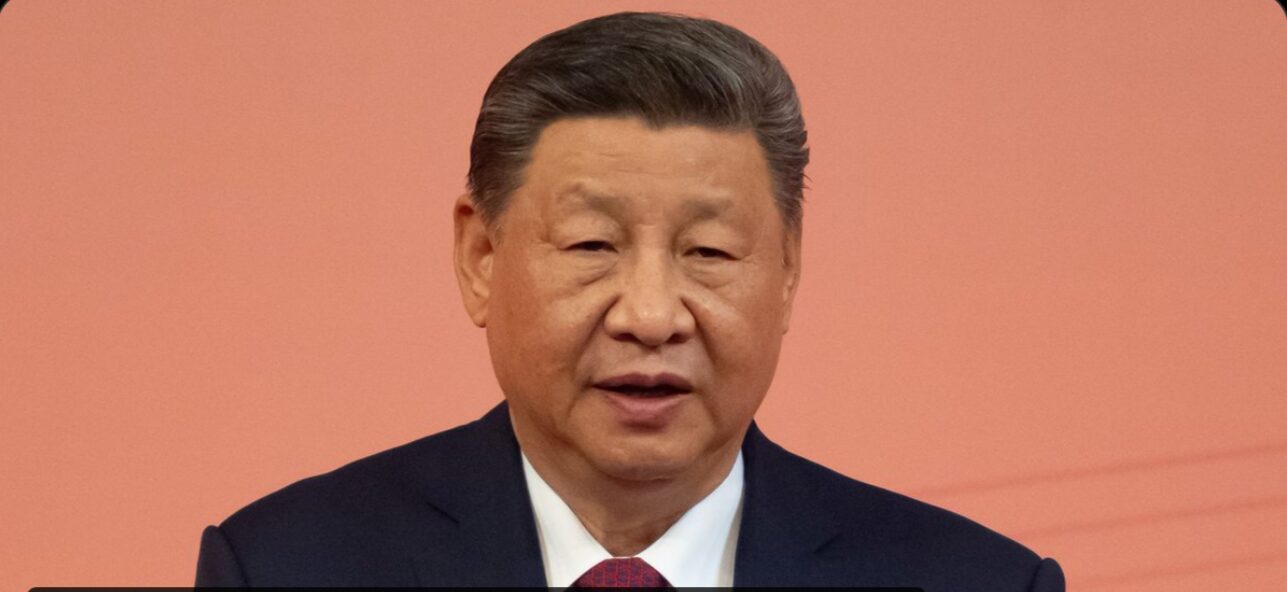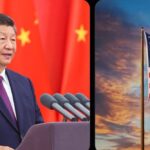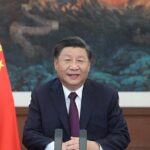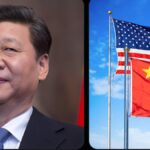Xi Jinping addresses China ahead of the new year, declaring that “no one can stop the historical trend of national reunification” with Taiwan
Xi Jinping Declares “No One Can Stop the Historical Trend of National Reunification” with Taiwan in New Year’s Address
As China enters the new year, President Xi Jinping has made a powerful statement regarding the nation’s aspirations for reunification with Taiwan. In his annual New Year’s speech, Xi declared that “no one can stop the historical trend of national reunification,” reaffirming his government’s stance on the Taiwan issue. This bold statement comes amid rising tensions in the Taiwan Strait and growing international concerns about China’s intentions towards its democratic neighbor.
The Significance of Xi Jinping’s Statement
Xi Jinping’s comments about Taiwan are not new, but the timing of his remarks at the start of 2025 highlights the continued importance of the issue in China’s national agenda. For years, Beijing has maintained that Taiwan, a self-governed island, is an inseparable part of China’s territory. The Chinese government has sought peaceful reunification, but has not ruled out the use of force if necessary.
In his address, Xi framed the issue as part of a larger historical process. “National reunification is a historical trend, and no one can stop it,” Xi stated, signaling his resolve to pursue reunification through all available means. This rhetoric is a reminder that the Taiwan issue remains a core priority for Beijing, with Xi viewing it as a key element of his legacy and a significant step in the nation’s path to national rejuvenation.
Taiwan’s Response and Growing Tensions
Taiwan, which has its own government, military, and democratic institutions, has consistently rejected Beijing’s claims of sovereignty over the island. Taiwan’s leaders, including President Tsai Ing-wen, have reiterated their commitment to maintaining the status quo and defending the island’s autonomy.
Xi’s remarks come amid heightened military tensions in the Taiwan Strait, with both sides engaging in frequent military drills and show-of-force operations. The Chinese military has increased its presence near Taiwan in recent months, while Taiwan has strengthened its own defenses, bolstered by support from the United States and other democratic nations.
The United States, in particular, has been a key ally to Taiwan, providing arms sales and reaffirming its commitment to Taiwan’s security under the Taiwan Relations Act. While the U.S. maintains a policy of “One China,” which acknowledges Beijing’s claim over Taiwan, it also opposes any unilateral attempts to change the status quo by force.
In his speech, Xi did not specify whether he believed reunification would happen peacefully or by force, but his remarks clearly suggest that he sees Taiwan’s eventual reunification as inevitable. This has raised concerns both in Taiwan and globally about the future of cross-strait relations.
The Role of Nationalism and Chinese Domestic Politics
Xi Jinping’s assertive stance on Taiwan is also closely linked to Chinese nationalism, which has been a cornerstone of his leadership since he assumed office in 2012. The issue of Taiwan resonates deeply with many Chinese citizens, who view reunification as a long-overdue resolution to what they see as a historic wrong dating back to the Chinese Civil War. National pride and the pursuit of national unity are central to Xi’s vision for a “great rejuvenation” of China.
By focusing on Taiwan in his New Year’s speech, Xi is also reinforcing his position as a strong leader who is committed to achieving the goals of the Chinese Communist Party (CCP). It also serves as a reminder to both domestic and international audiences that his administration is determined to pursue its vision, regardless of external pressure or opposition.
The push for reunification with Taiwan aligns with Xi’s broader ambition to position China as a global superpower. The Chinese president has emphasized the importance of “national sovereignty” and has called for greater control over what Beijing considers its territorial waters, which includes the Taiwan Strait and the South China Sea.
International Reactions to Xi’s Remarks
Xi Jinping’s comments have sparked reactions from various countries and international organizations, many of which have expressed concern over the potential for increased conflict in the Taiwan Strait. The United States, which has a long-standing relationship with Taiwan, remains opposed to any efforts by China to forcibly reunify Taiwan. While Washington has not formally recognized Taiwan as an independent country, it continues to support Taiwan’s right to self-determination and has reiterated its commitment to defending the island if necessary.
Other countries in the Asia-Pacific region, particularly Japan and South Korea, are also closely monitoring the situation. These nations are concerned about the potential impact of a Chinese military escalation in the region and are strengthening their own defense capabilities in response to China’s growing influence.
Meanwhile, China’s allies, such as Russia, have shown solidarity with Beijing’s stance on Taiwan, though Moscow has been careful not to directly intervene in the issue. Russia, currently engaged in its own conflicts with the West, has supported China diplomatically but is unlikely to become directly involved in any potential military action over Taiwan.
The Future of Cross-Strait Relations
As we move further into 2025, the question of Taiwan’s future remains one of the most critical and unpredictable issues in East Asia. Xi Jinping’s comments indicate that Beijing is prepared to continue pursuing its goal of reunification with Taiwan, but how and when this will happen is still uncertain.
For Taiwan, the challenge will be maintaining its sovereignty in the face of mounting pressure from China. While Taiwan’s government continues to build alliances and strengthen its defense capabilities, the island faces the ongoing threat of military coercion from Beijing.
Internationally, the situation remains delicate. The United States and its allies will likely continue to provide support for Taiwan’s self-defense while seeking to prevent the situation from escalating into a full-scale conflict. Meanwhile, China will likely continue its diplomatic and military pressure, hoping to convince Taiwan to accept reunification on its terms, even if it is unwilling to do so through peaceful means.
Conclusion: A Critical Moment for China and Taiwan
Xi Jinping’s declaration that “no one can stop the historical trend of national reunification” with Taiwan marks a significant moment in the ongoing tension between China and Taiwan. The president’s resolute tone serves as a reminder of Beijing’s commitment to its goal of reunification, whether through peaceful means or, as some fear, by force.
As the world watches closely, the situation in the Taiwan Strait will continue to be a source of geopolitical concern in 2025 and beyond. The decisions made by both China and Taiwan, as well as the responses of the international community, will shape the future of cross-strait relations and the stability of the broader Indo-Pacific region.

















Post Comment